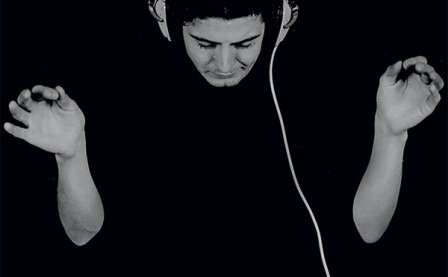Luciano Cilio was a name I hadn't heard of until late last year. After reading several glowing reviews of Dell'Universo Assente and noticing that Jim O'Rourke had contributed liner notes for the album, I felt I had an obligation to investigate it further. My search for the album resulted in one of the most transcendent music experiences I've enjoyed in the past ten years. It has since become one of my favorite albums in existence. And because of its recent popularity, Die Schachtel has re-released another 500 copies this year.
Statements of grandeur like the one above may appear reactive. After all, is it even plausible to hold an album in such high regard after only a short period of time? We all have albums that we praise one moment, yet show discontent for just a few months later. That's simply not the case here; the music is proof. It shouldn't take long to realize there's something much deeper going on here than with most albums being released.
Dell'Universo Assente contains eleven songs that drench of passion and hope for a better existence. They breathe life through their careful instrumentation, and show how well simplicity can articulate one's thoughts. Cilio performs on various instruments like piano and flute, but spends most of his time plucking the acoustic guitar. At its core, it's the fervor of the piano and acoustic guitar that ultimately lifts the album to a higher level. Not for one moment does Dell'Universo Assente embody anything that could be interpreted as filler.
Some moments are more experimental than others. However, even the experimental pieces are capable of pleasing the most casual listener. On "Studio Per Fiati (Originale Inedito)," Cilio spends nearly ten minutes pushing soft air through a flute, which instead of becoming tedious, swells into something much more complex and inspirational by the end. "Primo Quadra Della Conoscenza" embodies the sophisticated beauty of this work. Gently strummed guitar notes initially hint at a vintage folk aesthetic, but when it's met with a melancholic violin and haunting vocal, it quickly unfolds to show a decidedly more classical approach.
Up until this recording, Cilio had focused his efforts on sustaining notes so that he could capture the true essence of each one. This intense method would appear to be an extreme approach to some people, but we are rewarded for his progressive ideas. Yet even with this intense microscopic view, you never get the feeling that he's dwelling on one particular chord or progression.
Cilio took his own life in 1983, but not before leaving behind one of the true landmarks of modern music. Of course, as I say that, I have to remind myself that I just became aware of his music a short time ago. There are probably many others out there that I have no clue about. But the discovery of these things is always a beautiful experience. If I were to spend enough time delving into each of these songs, I could probably write a book about the emotions they bring. But I'm happy to say that by simply letting the music speak for itself, Dell'Universo Assente will be admired by anyone standing in its path.
1. Primo Quadra Della Conoscenza
2. Secondo Quadro
3. Terzo Quadro
4. Quarto Quadro Dell'Universo Assento
5. Interludio
6. Della Conoscenza (Originale Versione Inedita)
7. Studio Per Fiati (Originale Inedito)
8. Suiff (Frammento)
9. Liebesleid (Frammento Inedito)
10. Terzo Quadro
11. 4A Sonato
More about: Luciano Cilio


